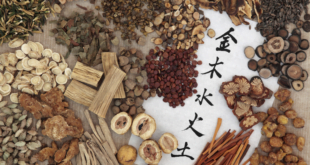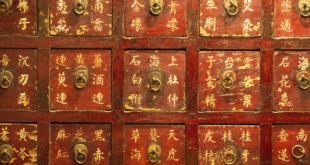Objective: This network meta-analysis aims to assess and compare the effectiveness of various external therapies from traditional Chinese medicine (TCM) in enhancing sleep quality among patients with cancer. Methods: We systematically searched nine electronic databases, encompassing five English and four Chinese databases, for randomized controlled trials (RCTs) from their inception up to …
Read More »AI can improve TCM syndrome differentiation
Objective: This study sought to explore the utility of machine learning models in predicting insomnia severity based on Traditional Chinese Medicine (TCM) constitution classifications, with an aim to discuss the potential applications of such models in the treatment and prevention of insomnia. Methods: We analyzed a dataset of 165 insomnia patients from …
Read More »The TCM syndrome differentiation of sickle cell disease
Background: Pain is a common, debilitating, and poorly understood complication of sickle cell disease. The need for clinical pain management of sickle cell disease is largely unmet and relies on opioids as the main therapeutic option, which leads to a decreased quality of life (QoL). According to the literature, acupuncture has …
Read More »The historical similarities between Chinese and Greek medicines
Using the philological method, the comparison was conducted between the internal canals of human body, meaning the four pairs of “phleps” in the ancient Greek medicine, and the eleven “mai” (meridians, vessels, channels) of Mawangdui silk manuscripts. It is believed that they refer to the initial understanding on the connecting …
Read More »The biological syndromes of rheumatoid arthritis match that of TCM syndromes
The present study explored the biological connotation of traditional Chinese medicine (TCM) syndromes of rheumatoid arthritis from the “disease-syndrome-symptom” association network. Rheumatoid arthritis patients with four TCM syndromes (dampness-heat obstruction, phlegm-stasis obstruction, Qi-blood deficiency, and liver and kidney deficiency), three for each type, were assigned as the rheumatoid arthritis TCM …
Read More »Tongue patterns seen in patients with kidney disease
Background: To apply non-invasive Autonomic Tongue Diagnosis System in analyzing tongue features in patients with chronic kidney disease. Material and methods: This was a cross-sectional, case-controlled observational study. Patients with chronic kidney disease who met the inclusion and exclusion criteria were enrolled and divided into the following groups according to renal function …
Read More »Ba Fa theory in Chinese herbal medicine
Introduction The eight strategies (Ba Fa) were originally recorded in the Nei Jing Su Wen. It wasn’t until the Qing dynasty that Dr Cheng Zhong-Ling organized and categorized the eight basic strategies known as the ‘Eight Methods in Therapy’ (Yi Men Ba Fa) (Williams 1992, p28) and recorded them in …
Read More »The transition from 11 to 12 meridian channels in ancient acupuncture theory
The discovery of modern evolutionary anatomy shows that the persistent median artery in the upper arm is a common variant with an increasing trend. This phenomenon can explain well the transition from the eleven meridians described in the Han silk and bamboo slips to the twelve meridians finalized in Neijing and the …
Read More »Jing (essence)
Jing translates into English as ‘essence’. Essence is a more concentrated form of yin. It’s like concentrated moisturising cream but in a fluid form that the body uses. It’s related to egg and sperm quality. Any chromosome abnormalities of the egg, poor egg reserves or morphology (physical structure) issues with …
Read More »Blood
Blood is the same in Chinese medicine as it is in Western medicine. If you’re anaemic in Western medicine, you’ll be lacking in blood in Chinese medicine. However, there are two distinct differences: Chinese medicine will diagnose you as lacking in blood a lot sooner than Western medicine. This is …
Read More » Acupuncture Times Read the latest acupuncture research articles about acupuncture, Chinese herbal medicine, cupping therapy and moxibustion.
Acupuncture Times Read the latest acupuncture research articles about acupuncture, Chinese herbal medicine, cupping therapy and moxibustion.




